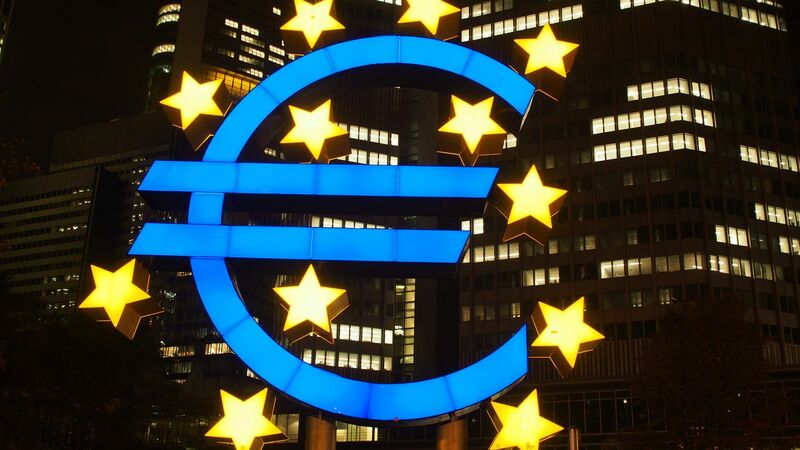
The Popularity & Price blog for Monday listed 171 U.S.-listed stocks hitting 52-week highs, 17x the number of stocks hitting 52-week lows.
One of the 10 names hitting a 52-week low was IHS Holding (IHS), A UK-based company that owns nearly 40,000 cell towers in Africa, Latin America, and the Middle East. IHS stock is down more than 32% year-to-date and 75% over the past five years.
The risk to own for most do-it-yourself investors is off-the-chart high. You don't want to bet on this stock, thinking it’s hit a bottom. That's not to say IHS isn't an exciting investment because it is; it's just that for most, it's not worth chasing.
However, I've got a possible backdoor way for you to gain exposure to the cell tower game in emerging markets without losing your shirt.
Here’s how.
What’s to Like About IHS
IHS is a leading player in Brazil and the number one independent multinational cell tower company in Africa. Since Nigerian-based conglomerate Dangote began running ads on North American TV to broaden its exposure outside Africa, I knew it was time to start paying more attention to business on the continent.
Its top three countries where it has cell towers are Nigeria (16,400), Brazil (7,388), and South Africa (5,691). Nigeria’s population is expected to grow by 2.3% annually between 2022 and 2027. The population growth for all markets where it operates is expected to be 1.4% annually over the next few years.
According to The Conference Board, most of the economies in its operating regions are expected to outperform mature economies in 2024. The average growth of the top mature economies in 2024 is projected to be 1.1%.
Latin America is projected at 1.4%, Middle East & North Africa (3.6%), and Sub-Saharan Africa (3.2%)—these are places you want to be if you’re focused on organic growth.
In Q3 2023, Nigeria accounted for 58% of its revenue, followed by Sub-Saharan Africa (29%), Latin America (11%), and the Middle East and North Africa (2%). Its largest customer is MTN Group (MTNOY), which accounts for 63% of its revenue. Other large telecoms make up the rest.
Not coincidentally, MTN owns nearly 26% of its shares, so the first backdoor way into these markets would be through MTN’s over-the-counter ADR shares.
But that’s not the backdoor play I was thinking about. I’ll get to that shortly.
What’s Not to Like
Nearly two-thirds of its revenue is generated from Nigeria. The company’s revenue was $467.0 million in the third quarter, 10.4% lower than a year earlier. If you exclude currency, its revenue increased by 30.6%. Unfortunately, due to a 78.2% devaluation of the Nigerian Naira, the reported revenue was $214.5 million less.
Currency will always be an issue in the markets where it competes. It’s a fact of life.
However, that doesn’t make it any easier to digest losses on the scale IHS generated in the third quarter. It lost $265.4 million, much of which was related to currency. For example, the devaluation of the Nigerian Naira in June created nearly $77 million in unrealized foreign exchange losses in its Nigerian business. While paper losses at this point, it’s still not a good look to investors.
It’s a big reason why its shares are trading near $4.
However, on an adjusted EBITDA basis, even its Nigerian business generated positive results in the third quarter. For 2023, IHS expects adjusted EBITDA of at least $1.13 billion on $2.08 billion in revenue.
From a price-to-sales perspective, IHS trades at 0.67x, significantly less than its multiple over the past two years. The currency issues have a lot to do with the valuation. In early July, it traded above $10.
But it’s risky.
The Backdoor Way to Play
IHS’s second-largest shareholder is the Wendel Group (WNDLF), which owns 19.0% of the stock.
Wendel is a Paris-based investment firm. It invests in both listed and unlisted companies for the long haul. The Wendel family controls the company through Wendel-Participations SE, which owns 39.6% of the equity and 52.6% of the voting shares.
The Wendel family business dates back to 1704. Jean-Martin de Wendel founded it. Initially, it was a sizeable European steel producer but diversified starting in the 1970s.
Today, approximately 1,260 Wendel family members have a stake in Wendel-Participations. Six family members sit on the Wendel Supervisory board, two employee representatives, and four independent directors.
Its structure reminds me of Brown-Forman (BF.B), the owners of Jack Daniel’s. The controlling Brown family has a Family Shareholders Committee to keep the dialogue between the company and the family members open. It’s what sustains the family-controlled business.
So, why invest in Wendel?
As of Sept. 30, the company’s net asset value per share was 162 euros ($175). It currently trades at a 50% discount to its NAV. On two occasions over the past five years, its OTC shares traded at or near $150.
It’s an unusual play but a much safer way to play the emerging markets and cell towers. Plus, it gives you several other interesting investments.
Patient investors should be rewarded.
On the date of publication, Will Ashworth did not have (either directly or indirectly) positions in any of the securities mentioned in this article. All information and data in this article is solely for informational purposes. For more information please view the Barchart Disclosure Policy here.







